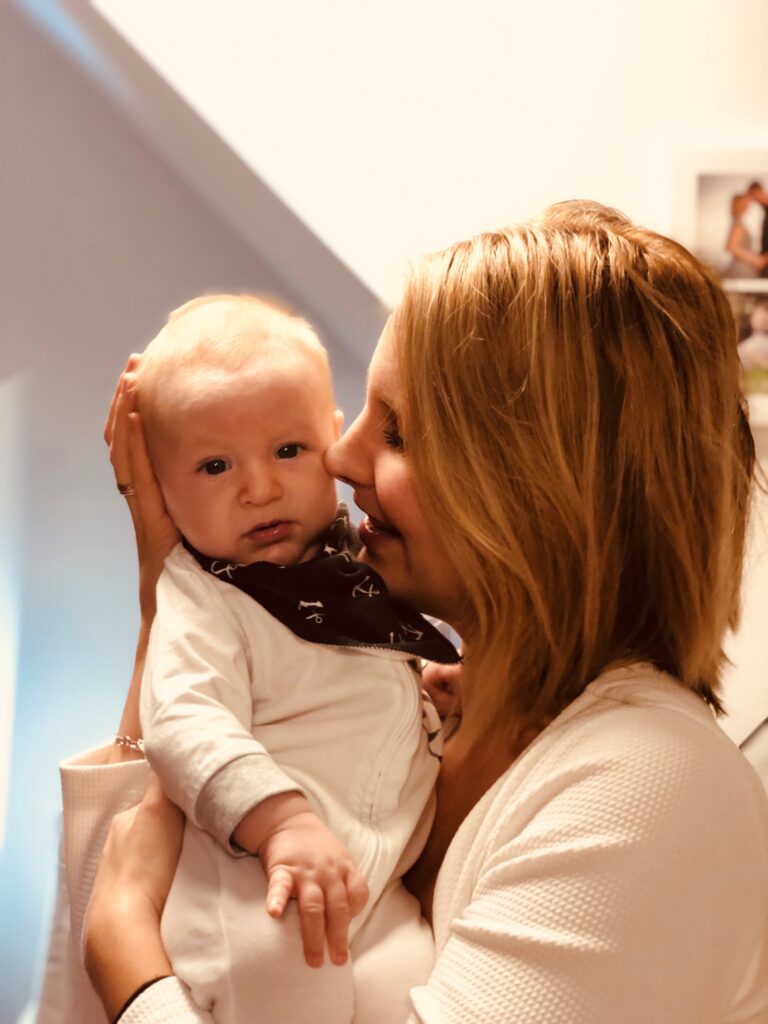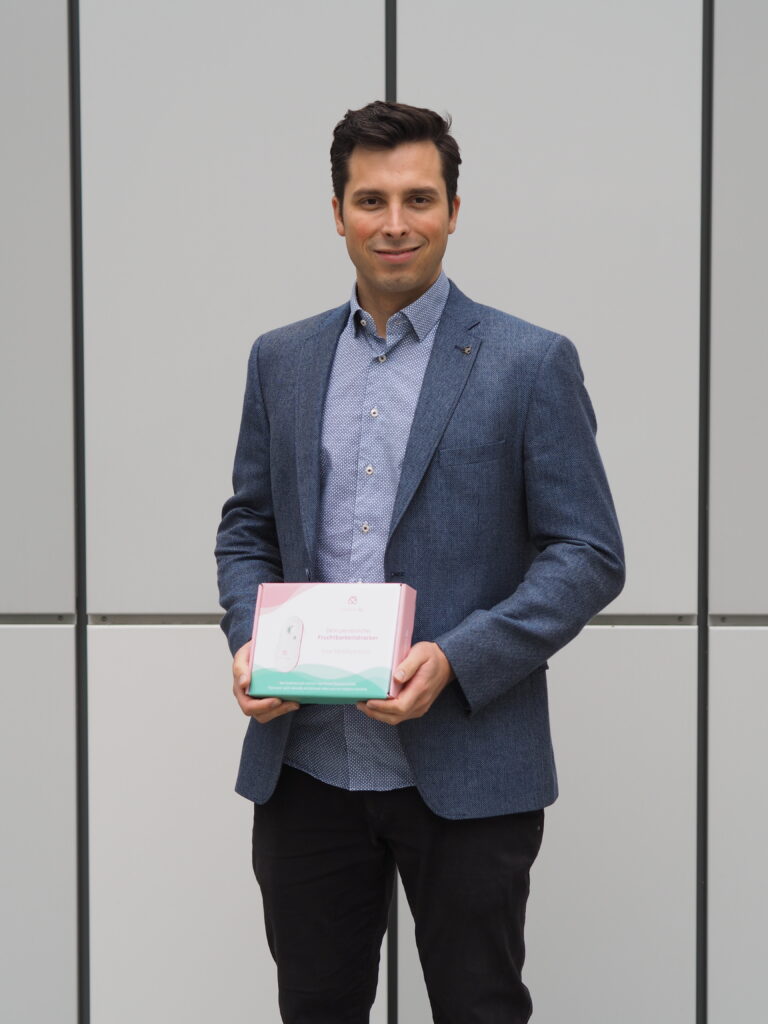New breath tests will be launching today, that can help to increase pregnancy rates with the world’s first fertility tracker breathe ilo, that uses breath analysis (CO2) to identify ovulation patterns.
With a study revealing that only 12.7% of women correctly estimate their ovulation day¹, breathe ilo is the easiest and most comfortable way to naturally track cycles with a small handheld device that is synced to an app. The technology reads the breath’s CO2 saturation to determine where a woman is in her cycle with incredible accuracy. The device uses real-time ovulation and historic symptom data to offer women precise day-to-day insights into their fertility forecast.
The new technology signals a shift so women no longer need to track their cycles by urinating on a stick or by measuring their temperature early in the morning. The innovative device works by simply breathing and displays the results in just 60 seconds, with no consumables or maintenance needed. Through consistent daily use, the breath analysis tracker empowers women to understand their body and cycle phases better.
The breathe ilo app, which is compatible with iOS and Android, features a calendar that displays a clear overview of fertile days and a cycle diary to learn more about individual cycle patterns. breathe ilo’s cycle diary also offers the possibility to document further cycle symptoms like breast tenderness, PMS, cervical mucus, or headaches to help prepare women for their next cycle.
Lisa Krapinger, breathe ilo’s spokesperson, says, “We believe that fertility and cycle tracking should not be a tiresome task. breathe ilo is designed to bring fertility tracking into the 21st century and the precise and uncomplicated nature of the device is the future of female health by using their breath.”
“Our mission is to not only make fertility tracking as easy as breathing, but we have a wider ambition to create a comfortable space where women can speak freely about trying to conceive and their menstrual cycles, along with all that is in between. With 640,370 women in England & Wales giving birth in 2019², we hope to make it easier and less stressful for those trying to conceive moving forward.”
Pia Haas’s story
After two years of trying for a baby, Pia Haas, 32, decided to take a chance on a new piece of tech to increase her likelihood of getting pregnant.
As part of a field study for the femtech start-up, Pia agreed to test out the device which claimed to be able to tell her when exactly it’s the right time to try conceive just by simply breathing. Three months later, Pia was stunned and delighted to find out that she was pregnant and became the first woman to give birth to a baby thanks to breathe ilo.
Pia, whose son Felix is now 10 months, says of her experience using the breathe ilo: “With breathe ilo my biggest wish came true. I think it is the easiest way of tracking your fertile days. It was less stress than peeing on sticks or measuring temperature. We are planning to use breathe ilo again in the near future to get a sibling for Felix.”
Dr Horst Ruther’s story
- Please can you share your own experience with trying to conceive and the difficulties you and your wife faced?
My wife and I’s wish to have a child was unsatisfied after more than 5 years of trying. The journey to parenthood was tough because it caused private pressure within our relationship as a couple, but over the years also external pressure from friends and family. The available methods to detect the most fertile days were not very user friendly or easy to use, and also quite unprecise. We even underwent some clinical treatment which only made us more frustrated and increased the pressure further. After several years, Edith and I decided to go down the adoption route and were very grateful to be able to adopt our son Benjamin. To our surprise shortly after adopting Benjamin, Edith became pregnant and our son Bastian was born only 10 months after his brother Benjamin.
- How did the idea behind breathe ilo manifest?
After having gone through a tough journey to become a father, I was super excited to learn about the research Prof. Wildt had done in the area of breath analysis to detect fertile days of women – particularly the great advantages of the method because it was much easier and more pleasant than any other method available. So I organised a meeting with Prof. Wildt and immediately knew that we were going to bring the innovation to the broad majority. While Prof. Wildt did show promising research results in the correlation of CO2 in breath and the female cycle with professional respiratory analysers at the clinic, he lacked the knowledge how to build an affordable respiratory analyser for women at home. But with my engineering background and 30 years’ experience leading successful development projects for blood gas analysers for diagnostic companies like Roche Diagnostics, we were able to collaborate to bring breathe ilo to life.
With the option to buy a device for £259.00 or rent for £29.90 a month, breathe ilo is available to purchase exclusively now at www.breatheilo.com from September 16, 2020.







